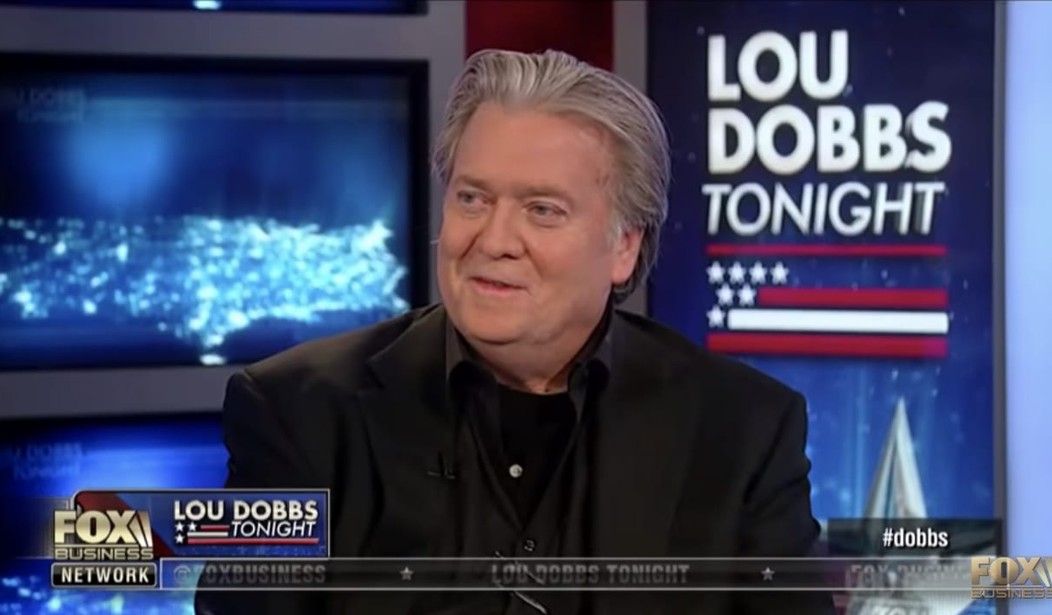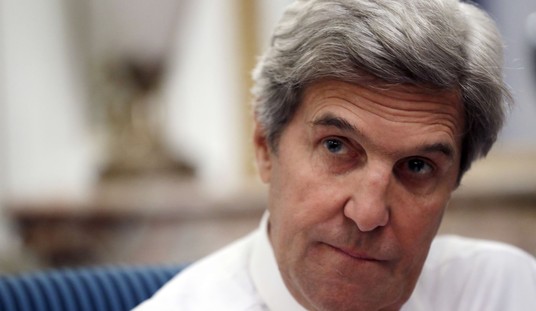Appearing on Lou Dobbs’ Fox Business Network show on Monday, former White House Chief Strategist and (also former) Breitbart boss Steve Bannon said that yesterday was the single most important day of Donald Trump’s presidency. The reason? He stood up to China.
“I happen to think that today [Monday] was the most important day of Donald Trump’s presidency,” Bannon told Dobbs. “He’s president of the United States because of the rejection of working-class people and middle-class people, about the managed decline of our country at the hands of people like Hillary Clinton. The Clinton global initiative, the whole Clinton apparatus. These globalists and elitists were very comfortable with the managed decline, particularly vis-a-vis the rise of China. And Donald Trump confronted that, particularly in the upper Midwest. This is the reason he won states like Pennsylvania, Michigan, and Ohio. People understand […] the factories went to China, the jobs went to China, and the opioids came in. So I think that Trump understands that tariffs are more than taxes. They’re more about self-empowerment of the working class.”
Not only does Trump understand this, Bannon said, but he also explained it very well. “Today he said that […] ‘I’m not going to do this, you’re not gonna come back and retrade us. I’m going to hit you with the tariffs.’ And I think this is a very big week in American economic history,” he added.
In this regard, Bannon explained, it’s important to keep in mind that the pressure on Trump to be soft on China has been enormous. “The IR department of the Chinese Communist Party, the Investors Relations department, is Wall Street, the lobbyists of corporate America. The pressure on President Trump has been relentless, and it’s all the Fear Project.”
Project Fear, he went on, is that we’re being told that “if you don’t actually get a deal that’s just about buying more soya beans, you’re going to have a collapse of the stock market and economic catastrophe. President Trump has stood up against that. President Trump says, ‘No! This is an economic war.’ We’re going to have fundamental, structural change in the state capitalism that China has. China has this system of state capitalism. We are going to get changes on forced technology transfers, subsidies to state-owned industries, intellectual property… These are deep issues.”
What’s more, Bannon said, these moves by Trump aren’t aimed at the Chinese people, but at their authoritarian rulers, who use their power and influence to enrich themselves, their family and their friends, while the average Chinese citizen continues to struggle (and is forced to keep his mouth shut about political issues — or else).
In other words, American lobbyists and Wall Street investors — who are putting pressure on Trump — are actually helping an enemy of the American and of the Chinese people, namely the Chinese Communist Party.
Watch the video:
Although I’m naturally inclined to argue against imposing tariffs — this stems from my belief in the free market system: international free trade has proven to be good for everybody — my views have evolved over the last few years.
First of all, Trump has shown that the threat of imposing or increasing tariffs is a very powerful negotiating tool. So making clear you’d never do so immediately sets you back. Trading “partners” have to at least believe you may do something with tariffs.
Secondly, it’s been made increasingly clear that the United States has been treated unfairly by its supposed “partners” for years. Other countries impose tariffs on American products — there’s a reason you see almost no American cars in Europe — but when the U.S. talks about doing the same, they cry foul and pretend to be all about free trade. That’s not how this is supposed to work. Either both parties don’t use tariffs, or they both do. If European and Asian countries want their products to be exported to the U.S. without extra added costs, they’ll have to return the favor. Until today, they haven’t done so.
So, it does make perfect sense for Trump to a) threaten with an increase of tariffs and b) to actually follow through on his threats if America’s “partners” don’t change their policies.









Join the conversation as a VIP Member